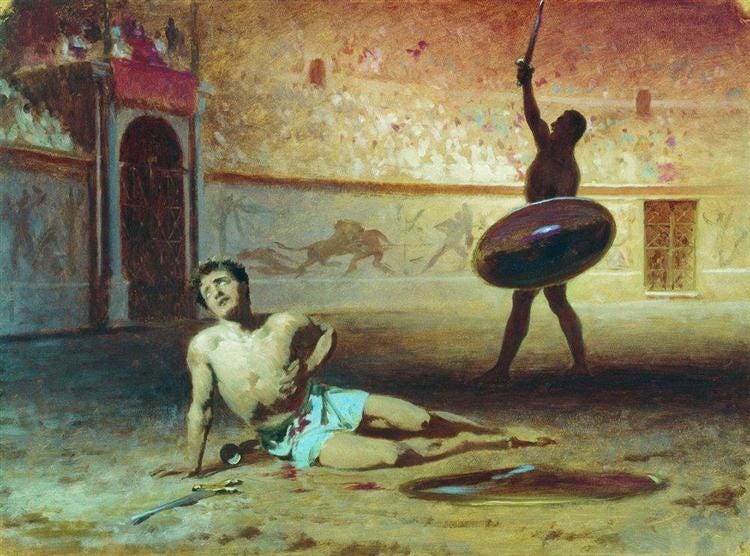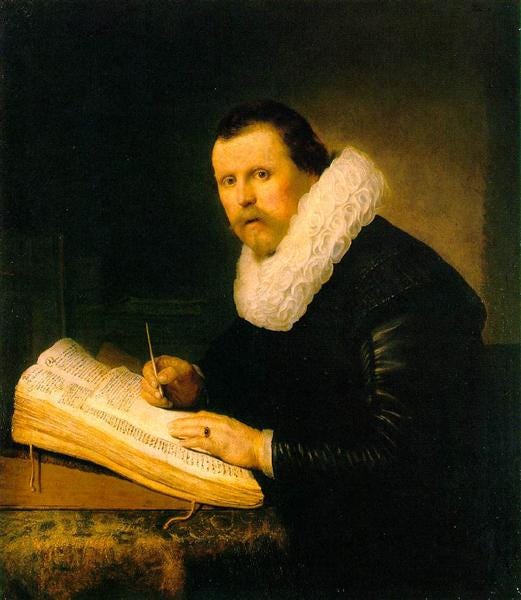Hello, my friends,
I seem to be having trouble publishing on Friday mornings for the past few weeks. Mostly, it’s just that when it gets to Thursday evening when I’ve typically written the newsletter I’m so worn out that I watch YouTube videos or read a book after the kids are in bed. This past Thursday I went to Brazilian Jiu-Jitsu (BJJ) and so was also physically tired when I returned home. Needless to say, I could’ve said hello to my friends, but not much beyond that.
Last week, I updated you on some sumo news. Now that the tournament is nearing its end (on Sunday), I can tell you that young phenom Oonosato will not be the victor, though he will finish with a winning record. Hoshoryu and Kotozakura, the top two Ozeki (second-highest rank), ended up with the best records (finally, these guys are living up to their potential!). On the final day, Kotozakura managed to pull out a victory but in a less than ideal way — during their match Hoshoryu was backing up and slipped. Everyone hates to see that happen! Still, both had great tournaments much to the delight of fans. And for non-fans, thank you for sticking it out through this paragraph. :o)
Game On!
A while ago (#19), I wrote about a very simple tabletop RPG game I created to play with Michael. We’ve played it a few times since then, which is fine with me. He still has it in his room and has made a few modifications to it.
Anyway, early this week, I found Michael busy at work in his room around bedtime. “What are you doing?” I asked. “Creating a game!” He answered, madly coloring. He wanted to show it to me and play as soon as he was done but I refused (see: bedtime) and we didn’t have any time over the past few days. But he showed it to me today and explained some of the fundamentals and I’m looking forward to playing.
We’ll likely play in the next few days, and I can’t lie, I’m looking forward to trying out this (thus far) unnamed game.
Sir Thanksalot
Thanksgiving, one of my favorite holidays, is coming up next week and that reminds me to link a library article I wrote back in 2017 that provides scripts for talking to family and friends who poo-poo libraries: How to Respond to People Who Don’t Get Libraries. Beyond that, I’m reminded once again to be thankful for what I have: A healthy and happy family, a satisfying job, the resources (time, money, and desire) to pursue physical culture, ditto for other interests. It’s really hard to be need anything beyond these fundamentals of a good life so I’m grateful every day that I can wake up to it.
I’m generally an enthusiastic person but I see many people have a challenging time finding their joie de vivre these days. For some, it’s because of a real fear that the government will literally be coming after them (or their friends and family), for others it’s being worn out by the constant barrage of political news, expensive groceries and student loans, and/or whatever ails you. I won’t presume to have answers to these very real problems, but I do want to squeak in to remind you to take a few minutes or more to look around for (or make) something positive or, at least, something value-neutral.
Don’t give in to the urges to receive everything with cynicism. Once you’re flowing down that river it’s hard to keep from going down the waterfall of adding to other people’s suffering as well as your own. As Ben Franklin wrote in his Autobiography, and I paraphrase, humans are very reasonable creatures, they can convince themselves of anything. To that end, I’m not an advocate of seeing the good in everything; some things suck and there’s no need to add sugar. But do see the nice things in the world as they are and be grateful for them. That’s a gift we give to ourselves every day!
30-Minute School
I recently read an interview with designer(++), Yatú Espinosa, on Are.na. Throughout the interview, Mr. Espinosa talks about collaborating with others on creating self-education opportunities. This got me thinking about being stuck in a rut between the questionable efficacy of micro-learning and my lack of time for going all-in on a subject. There has to be a way to balance the desire to learn in a structured way with a busy person’s schedule so I asked myself, how much time (and brain cycles, which is equally important) can I spare each day specifically on learning. 30 minutes seems doable.
So then further questions arose: What are we capable of if we created a curriculum that fit into thirty minutes a day for, say, 6 weeks. or 21 hours total. Surely not mastery, but at least a start. They key, I think, is finding the right mixture of concepts, assessments, creative expression to make ideas and the connections between them stick and arouse further interest.
I recall when I was in grad school, the most reading I did was for the two independent study courses I took. One was on hypertext literature (on it’s own, an overrated concept, imho) and the other was on hypertext systems predating the world wide web (this one is, wildly, still up). The reason for that is because I was interested and excited about the subject. So while the curriculum of 30-Minute School should fit into it’s allotted time, there should also be, on the part of the learner the fire to go beyond that time when possible.
So what kind of courses would work with this model? The key is to keep it both inspiring and realistic. The most important question is: What would you like to learn? And then one would stack individual courses as knowledge of a topic develops, so for someone who is interested in psychology (me?), some course examples might be:
Intro to Psychology: Survey of larger topics, key terms, biggest names. A guide to the field setting the stage for what’s next.
History of Psychology (1890-1920): A dive into the genesis of psychology as an academic subject considering the big names, their important ideas, and narratives that explain how the field developed.
Origins of Humanistic Psychotherapy: Something like a seminar-style look at a more specific topic in the greater field. What is humanistic psychotherapy? How did it develop? How does it break down? What are some major characteristics of this type of therapy.
As you can tell, there is an interplay of boundary and connection between these courses. It’s not a stretch to say that one can gain a basic-enough facility in each of these in 21 hours. Really, it’s just pecking at the subject, but we’re after satisfying curiosity in a more structured way and not becoming masters.
Of course, it’s a chicken-and-egg question since the curriculum needs to be put together in order to be carried out. We’ll see, maybe I’ll try to put one together for fun. Let me know if you want to collaborate!
Confidential to D.W.: Happy slightly belated birthday! Hope you do something fun this weekend and spread it like smooth peanut butter across the whole year!
Confidential to A.K.: Mrs. Meowers.
Time Machine
Here’s what I wrote in HMF a year ago (in issue #39):
Mini ‘Views: Short book reviews of titles I’d read. All graphic novels.
TraumaGate: Most seemingly big parenting choices actually have no discernable long-term consequences.
Thank You, Critics: A tribute to capable critics.








Please do keep us updated on the Unnamed Game. Raising a child who thinks in terms of creating a game rather than just playing one is a gorgeous and profound accomplishment.
And thank you for the reminder to try to make space for the positive in all of this. I feel like being happy is somehow normalizing, which I don't want to -- someone asks me how I am and even if in that moment, I'm actually okay, I don't want to say it because it implies that everything is fine.... just fine... when it's self evidently very much not. But I also don't want to allow the political situation to take away my happiness -- they're already going to take away enough without getting that. I'm not sure how to navigate all of that, but your piece (and the Unnamed Game) remind me to keep trying.